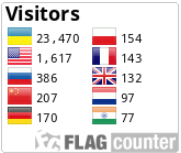ENGINEERING EDUCATION QUALITY ASSURANCE IN THE EUROPEAN EDUCATIONAL AREA
DOI:
https://doi.org/10.28925/2518-7635.2018.3.6Keywords:
competencies, educational program, educational services, engineering education, higher education institution, quality assurance, quality control.Abstract
The article covers the main principles of the engineers education and ensuring the connection of the proposed educational material with their future engineering activities, the prospects of technical, technological, economic and social development of society. Issues on the quality of educational programs in higher education institutions are briefly outlined. Among the requirements for future engineering activities are considered requirements for the formation of the content of engineering education, its humanization, fundamentalization and professionalization.It is concluded that the most anticipated in the international educational services market are educational and professional programs for training specialists in the scientific and technical field, formed by a list of specialties traditionally for European, African and American countries, whose content and structure corresponds to accepted international requirements. For the formation of a modern domestic engineers' corps it is necessary: to substantially raise the prestige of engineering professions; to ensure the introduction of qualitative changes in the training of engineers, focusing it on the current advances in science and technology, in-depth study of fundamental disciplines, the development of creative and organizational skills of future engineers, their ability to work in conditions of fierce competition; to carry out qualitative improvement of the teaching staff and re-equipment of the training laboratory base; to provide an opportunity to increase the participation of industrial enterprises, research and design institutions in the training of specialists in engineering; create the legal framework for corporate training of engineers in higher education institutions. In order to coordinate the activities of higher education institutions that train engineers, it would be expedient to broaden the experience of public accreditation of engineering education programs and certification of engineering qualifications and professional engineering activities.
Downloads
References
Poholkov, Yu. P., & Chuchalin, A. I. (2004). Management of the quality of engineering education. University administration. Issue 5–6 (33), 121–125.
Agranovich, B. L., Chuchalin, A. I., & Solovyev, M. A. (2004). Innovative Engineering Education. Engineering Education. Issue 1, 11–14.
Grebnev, L., Kruzhanin, V., & Popova, E. (2003). Modernization of the structure and content of engineering education. Higher education in Russia. Issue 4, 46–56.
Quality Management at the University (2002). Pokholkova, Yu. P., & Chuchalina, A. I. (Eds.), 251.
Mesyats, G. A., Pokholkov, Yu. P., Agranovich, B. L., and others. (2003). Academic Innovation University. Higher Education Today. Issue 7, 12–21.
Damien, E. (2007). Out of the crisis. New People Management, Systems and Process Management Paradigm / Edward Daming;Tr-n from English. Moscow, RF: Alpina Business Books, 370.
Basic principles of the national doctrine of engineering education. Retrieved from http://aeer.cctpu.edu.ru/winn/doctrine/doctrine_4.phtml
Law of Ukraine «Pro vyshhu osvitu» [About Higher Education] from 01.07.2014 №1556-VII. Retrieved from http://search.ligazakon.ua/l_doc2.nsf/link1/T141556.html













